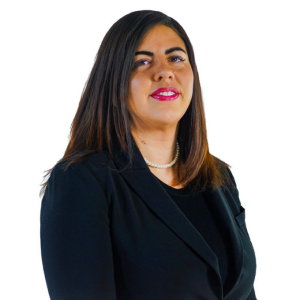
For many intended parents, overseas surrogacy looks quicker, clearer, and more certain than trying to find an altruistic surrogate in Australia. Clinics advertise complete “packages”, there are well-trodden pathways in some countries, and the promise of a defined timeline is compelling.
The legal reality for Australians—especially NSW residents—is far more complex. Before you sign anything or commence treatment overseas, it’s vital to understand how Australian law treats international surrogacy, what recognition (if any) you’ll receive back home, and the immigration steps needed for your child.
Why Australians look overseas
Scarcity of local surrogates. Altruistic arrangements in Australia can take time to form, and not every clinic facilitates introductions.
Perception of certainty. Some jurisdictions offer structured programs, predefined costs, and agency support.
Timelines. Intended parents may feel pressure due to age, medical issues, or life plans.
Those motivations are understandable. But they sit alongside non-negotiable features of Australian law that you must navigate.
The legal position under NSW and Australian law
In New South Wales, commercial surrogacy is illegal—even if it occurs overseas and is lawful in the foreign country. A person ordinarily resident in NSW commits an offence by entering into, or offering to enter into, a commercial surrogacy arrangement. The maximum penalty is 2,500 penalty units or 2 years’ imprisonment (or both).
Two points follow:
The offence applies extraterritorially to NSW residents; the fact the conduct is legal overseas is not a defence.
Altruistic surrogacy overseas is not prohibited by that section—but proving an arrangement is truly altruistic (rather than “compensated” in a way that amounts to reward) can be difficult in practice. Many offshore programs described as “compensation-based” would still be regarded as commercial under NSW law.
Across Australia, the public policy is consistent: altruistic yes; commercial no. That policy underpins how courts and agencies respond when families return home.
Parentage: why a foreign birth record is not enough
A child born overseas may have a local birth certificate naming the intended parents, or there may be a local court order recognising them. Neither document is automatically recognised as creating legal parentage in Australia. Australian law determines parentage according to domestic legislation, not by mirror-adopting a foreign register entry.
In NSW, the usual pathway that confers legal parentage—a Parentage Order under the Surrogacy Act 2010 (NSW)—is designed for arrangements compliant with the NSW Act (altruistic, with pre-conception advice and counselling, etc.). Where treatment and birth occurred entirely offshore, particularly under a commercial model, a NSW Parentage Order is generally not available. In that scenario, intended parents often need to rely on parenting orders under the Family Law Act 1975 (Cth) to formalise care—orders that regulate who the child lives with and who has parental responsibility, but do not change legal parentage. (This is one reason experienced advice before you proceed overseas is critical.)
Citizenship and immigration: getting your child home
Separate from parentage recognition is the question of how your child can lawfully enter and reside in Australia. The Department of Home Affairs has specific guidance for international surrogacy:
Citizenship by descent. A child born overseas may be eligible only if at least one parent is an Australian citizen and the Department is satisfied a parent-child relationship exists—usually demonstrated by a genetic link. DNA evidence is often required where documentation is uncertain.
If there is no genetic link to an Australian citizen parent, citizenship by descent may be refused. Alternative pathways (for example, a Child visa) can be complex and time-consuming, and outcomes depend on the facts.
Prepare for delays. Families frequently need to remain overseas while citizenship or visa applications are processed and DNA testing is organised by a NATA-accredited provider.
Practically, you should expect to collate medical records, the surrogacy agreement, clinic documents, proof of genetic material used, and consent material from the surrogate to support applications.
Commercial vs altruistic overseas arrangements: where lines are crossed
Australian law focuses on substance rather than labels. If the surrogate or an intermediary receives any fee, reward, or material benefit beyond reimbursement of genuine costs, the arrangement is “commercial” for NSW purposes—even if the foreign program describes it as “compensation”, “stipend”, or “package”. Payments for pain and suffering, profit margins to agencies, or guaranteed lump-sum “allowances” typically tip the arrangement into commercial territory.
Because the Parentage Order process scrutinises payments when families are back in NSW, any indication of commerciality can block recognition and leave you reliant on parenting orders only. That outcome can have downstream implications for name, birth registration, inheritance planning, and decision-making authority.
Practical risks to plan for
1) Legal uncertainty. Countries differ on who is a “parent”, when consent can be given, and how payments are regulated. Outcomes offshore may not “translate” in Australia.
2) Ethical safeguards. Australia’s altruistic model exists to avoid exploitation and ensure consent. Courts and agencies here remain alert to coercion or lack of transparency.
3) Time and cost. DNA testing, citizenship processing, and document verification can take months. Families may need extended stays overseas while applications are finalised.
4) Health and documentation. Hospitals, clinics, and agencies vary in record-keeping. Missing or inconsistent paperwork causes real delays with citizenship and visas.
How Australian courts and agencies deal with returning families
Family Court (parenting orders). The court can make parenting orders allocating parental responsibility and care arrangements. These orders help you make decisions for your child and access services, but they do not confer legal parentage.
Supreme Court of NSW (parentage orders). Where an overseas arrangement does not meet the NSW Act’s framework (commonly the case with commercial programs), a NSW Parentage Order will generally not be made.
Home Affairs (citizenship/visas). The Department applies its own criteria and may require DNA testing and additional evidence even where a foreign birth certificate lists you as parents.
The consistent through-line is the best interests of the child, balanced with Australian public policy against commercial surrogacy, and the need for reliable, verifiable evidence.
Best practice before you commit to an overseas pathway
Obtain specialist legal advice in both countries—before conception, not after birth. NSW criminal, family, and immigration implications must be mapped out alongside foreign law.
Interrogate the payment structure. If any element looks like reward or “profit”, assume it is commercial for NSW purposes.
Plan immigration early. Confirm whether you can meet citizenship by descent criteria (including a genetic link) or whether a Child visa pathway will be required. Understand timeframes and documentary standards.
Secure robust documentation. Ensure the clinic/agency will provide full medical records, embryo provenance, consents, and the surrogate’s post-birth authorisations.
Budget time and contingency. Build in the possibility of several weeks (or months) offshore awaiting DNA results and Home Affairs decisions.
Domestic alternatives worth revisiting
Altruistic surrogacy within Australia is lawful nationwide, with each State and Territory providing a framework that emphasises informed consent, counselling, independent legal advice, and court oversight. While the path can be slower, it brings clearer recognition at the end of the process and avoids the immigration uncertainties that come with an overseas birth.
Key takeaways
For NSW residents, entering into commercial surrogacy overseas is a criminal offence. Labels used offshore don’t control the analysis—substance does.
A foreign birth certificate or court order does not automatically confer legal parentage in Australia; NSW Parentage Orders are generally unavailable where the arrangement was commercial or did not meet the NSW Act’s pre-conception safeguards.
Citizenship by descent typically requires an Australian citizen parent and evidence of a genetic link; DNA testing is often requested. Without a genetic link, expect a more complex visa route and potential delays.
Early, specialist advice across family law and immigration is essential to avoid criminal exposure, recognition gaps, and prolonged time overseas.
Surrogacy Articles
If you’re considering an international surrogacy arrangement, it may also prove helpful to consult our related guides that cover the full spectrum of surrogacy law, practice and complications in Australia:
Surrogacy in Australia — a broad overview of how surrogacy is regulated across Australia and the legal principles that apply.
The Legal Process of Surrogacy in NSW — sets out the specific steps, documentation and eligibility requirements under New South Wales law.
Altruistic vs Commercial Surrogacy: What’s Legal in Australia — explains the permitted and prohibited forms of surrogacy within Australia, including the particular risks when arrangements cross borders.
Who Are the Legal Parents in a Surrogacy Arrangement — clarifies how legal parentage is determined and transferred under Australian law, and how this can complicate international arrangements.
How Courts Decide Parentage Orders in NSW Surrogacy Cases — outlines how Australian courts approach the recognition of parentage orders, a key concern for children born overseas through surrogacy.
What Happens If a Surrogacy Arrangement Breaks Down — discusses the potential legal, practical and human-rights risks if international surrogacy arrangements do not proceed as planned.
Reviewing these resources together can give you a more complete understanding of how international surrogacy fits within Australia’s legal framework — including cross-border implications, recognition of parentage and the practical realities of bringing a child into Australia.
Considering international surrogacy?
At Thornton + King, our surrogacy specialists advise families at the planning stage—before commitments are made—so you understand the criminal, family-law, and immigration implications, and how to protect your position. Our surrogacy lawyers make the law simple, so you can make informed decisions with confidence. To speak to a surrogacy law specialist solicitor, give us a call or submit an enquiry now.








